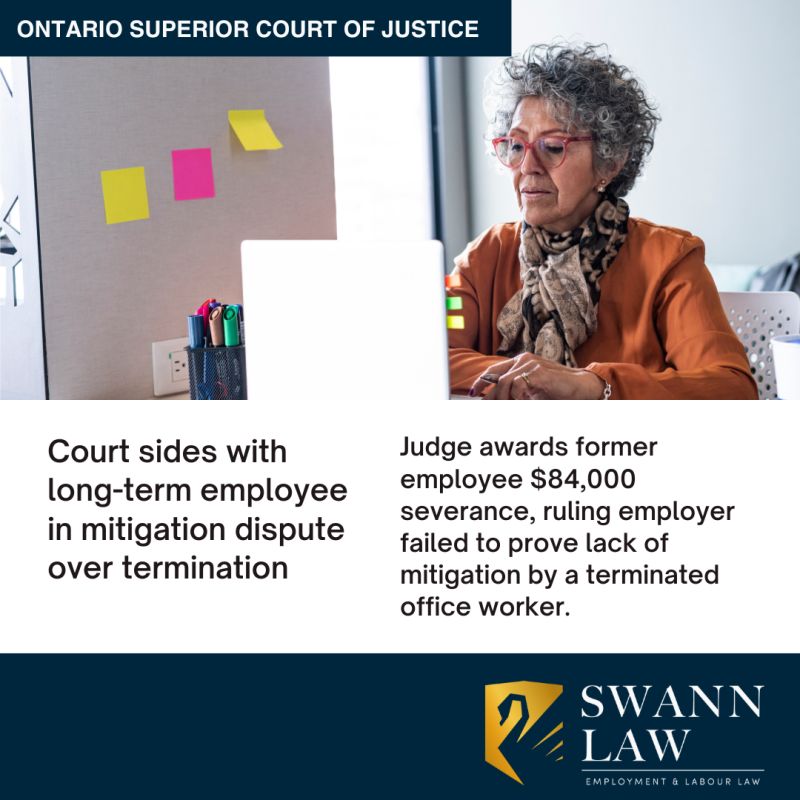A court victory for an office worker fired after 35 years of service is a classic example of the difficulty employers will face proving a failure to mitigate in cases involving very long-term employees.
The decision was unreported, but as prominent mediator Barry Fisher (https://ow.ly/Po8B50S4Ctn) notes in his summary of the case, the 56-year-old office administrator was earning just over $42,000 per year at the time of her termination without cause in October 2020, having spent her entire working life with the same employer.
She had only a high school education and poor computer skills. The parties agreed on a notice period of 24 months, but the employer claimed a reduction was in order because the terminated worker had failed to mitigate her damages, pointing to her admission that she had delayed her job search for four months, only to end up applying for just 59 or the 5,000 job openings the company had sent her way.
The firm also offered her $1,400 towards career counselling, but never provided her with the names of any service providers who could do the job for that price. In the end, the judge sided with the plaintiff, ruling that she was entitled to the full 24 months of severance pay — for a total damages award of $84,000 — after concluding that her former employer had failed to prove any failure to mitigate.
The judge accepted the woman’s explanation that she had delayed her job search because she was in shock at her termination and worried about the COVID-19 pandemic, which was at its height. In addition, the judge found that the worker’s eventual job search was reasonable, noting that she was unqualified for many of the thousands of postings sent by the company.
I agree with Barry that it’s almost futile to claim a failure to mitigate in cases involving very long-term employees. Judges are generally inclined to give them some leeway when it comes to starting their job search. That’s especially true in cases like this, which did not involve a particularly senior-level or highly paid employee.
Tap the link to read Barry’s analysis: https://ow.ly/klAg50S4Ctm

